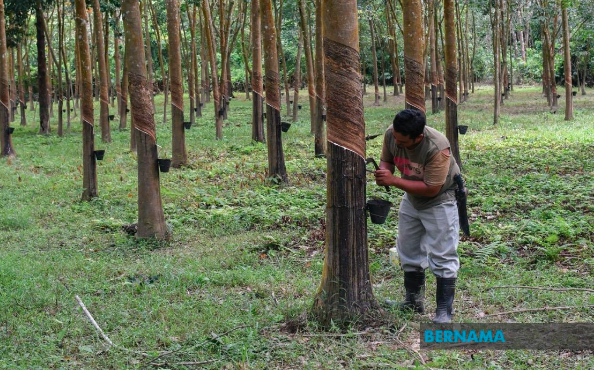CENTRALISED MODEL BEING DEVELOPED TO OVERCOME RUBBER WORKER SHORTAGE

The government is developing a centralised consolidation and clustering model to address local and foreign labour shortages in the rubber industry's upstream sector.
The Plantation and Commodities Ministry said this is being done with the participation of several other agencies, government-linked companies and private companies in the supply chain.
The concept is based on “an entity” operating within an untapped area and selling its produce directly to processing factories without involving middlemen or dealers.
“This entity will manage plantation operations, including ensuring sufficient workers to achieve the planned yields.
“Through this method, the government expects the labour shortage problem in the upstream sector to be resolved, further helping to raise the country's rubber production,” it said in a reply posted on the Parliament's website.
The ministry was responding to a question from Datuk Seri Ismail Sabri Yaakob (BN-Bera) who wanted to know the steps being taken to address local and foreign labour shortages in the rubber sector.
On the government's measures to stabilise rubber prices, the ministry said Malaysia is working with the world's major rubber-producing countries under the International Tripartite Rubber Council and Association of Natural Rubber Producing Countries frameworks to stabilise prices through supply management and to raise the use of natural rubber among producing countries.
The introduction of a Livelihood Price Mechanism at the international level, aimed at safeguarding smallholders' livelihoods, is being planned, particularly to ensure that importing countries pay prices based on production costs and sustainability in line with standards set by consumer countries, it said.
